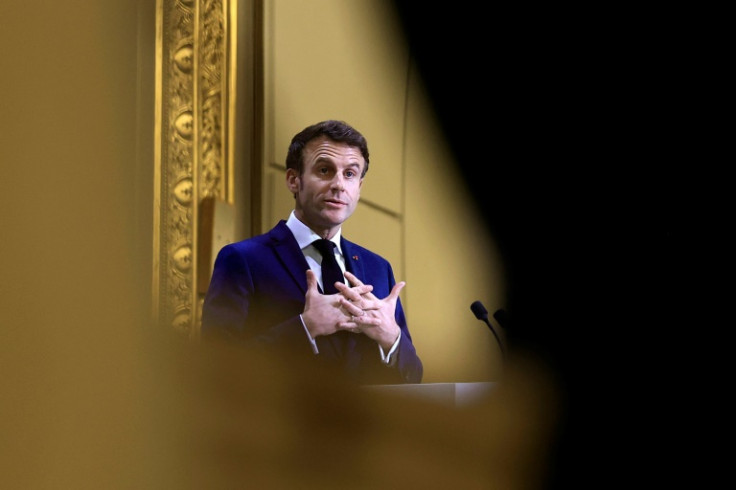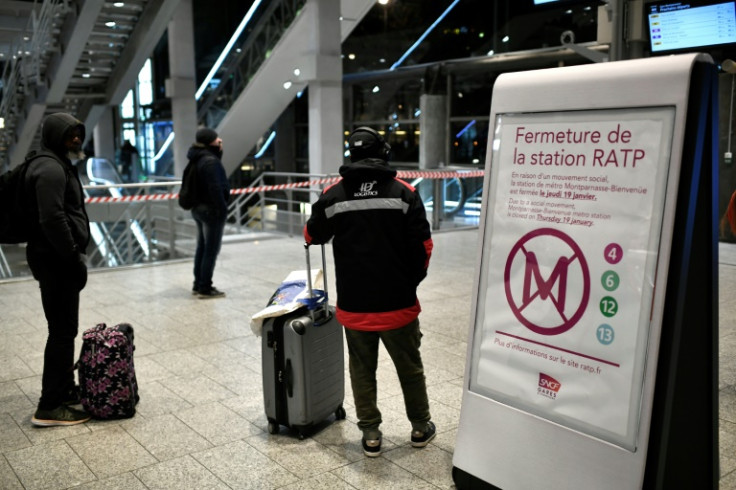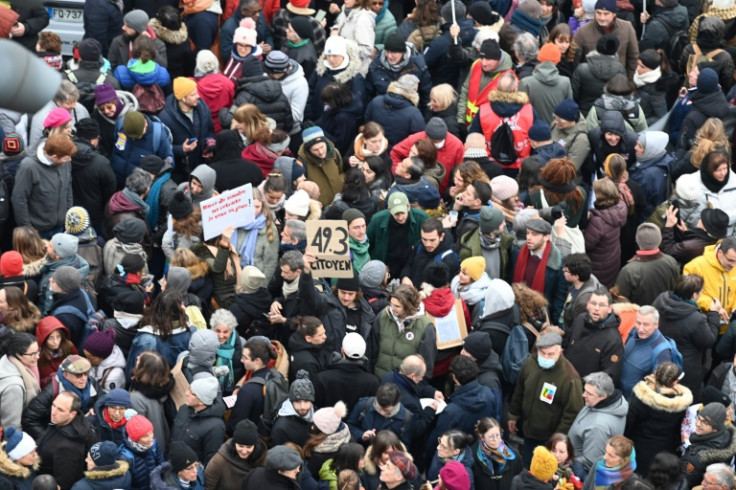Tensions Mount In France Ahead Of New Pension Strike

France braced Monday for another day of mass protests and strikes over proposed pension reform, with the government of President Emmanuel Macron and its left-wing opponents trading blame for the expected disruption.
Around 1.1 million people took to the streets for the first strike day on January 19, according to official statistics, the biggest demonstrations since the last major round of pension reform under right-wing president Nicolas Sarkozy in 2010.
A police source told AFP that security forces were expecting similarly sized crowds on Tuesday, with 1.2 million seen as the upper limit at 240 demonstrations around the country.
With unions warning more stoppages are to come, the strikes represent a major test for Macron as he seeks to implement a showcase policy of his second term in office.
The president's ministers and their opponents are desperately seeking to sway public opinion ahead of what is expected to be a bitter and costly standoff over the next month.
Senior hard-left MP Mathilde Panot from the France Unbowed (LFI) party accused Macron and his ministers of being responsible for the stoppages that are expected to cripple public transport and other services again.
"They're the ones who want to wreak havoc on the country," she told BFM TV while also criticising comments by Interior Minister Gerald Darmanin over the weekend as a "provocation."
Darmanin, a close Macron ally, said Saturday that left-wing political parties were "only looking to screw up the country" and were defending "idleness and champagne socialism."
The most controversial part of the proposed reform is hiking the minimum retirement age to 64 from its current level of 62, which is the lowest level in any major European economy.
Macron made the change part of this re-election manifesto in April last year and he insists it is needed to guarantee the future financing of the pension system, which is forecast to tip into deficit in the next few years.
Opponents point out that the system is currently balanced and that the head of the independent Pensions Advisory Council recently told parliament that "pension spending is not out of control, it's relatively contained."
For pro-business Macron, who has repeatedly told French people they "need to work more", failure to succeed with a signature proposal would severely undermine his credibility for the remainder of his second and last term in office, analysts say.
The government headed by Prime Minister Elisabeth Borne has signalled there is wiggle room on some measures as parliamentary committees started examining the draft law on Monday.
Conditions could be improved for people who started working very young, as well as for mothers who interrupted their careers to look after their children and for people who invested in further education, Borne has suggested.
But the headline age limit of 64 is not up for discussion, she said Sunday, calling it "non-negotiable."
Despite the policy being a flagship of his second mandate following his 2022 re-election, Macron has so far sought to stay above the fray and commented only occasionally on the growing tensions.
Darmanin's intervention has not helped reduce strains, with the tough-talking minister telling the Le Parisien daily Saturday the left were defending an idea of a "society without work and effort".
The left-wing opposition has submitted more than 7,000 amendments to the draft legislation in a bid to slow its path through parliament.
Macron's centrist allies, short of an absolute majority in parliament, will need votes from conservatives to get their pensions plan approved.
A new poll by the OpinionWay survey group, published on Monday in Les Echos newspaper, showed that 61 percent of French people supported the protest movement, a rise of 3.0 percentage points from January 12.
A majority of French people -- 56 percent -- think reforming the pension system is necessary, the data showed.
But the proportion convinced of the need for change is falling, down five points since January 12, the survey group said.


© Copyright AFP 2024. All rights reserved.





















